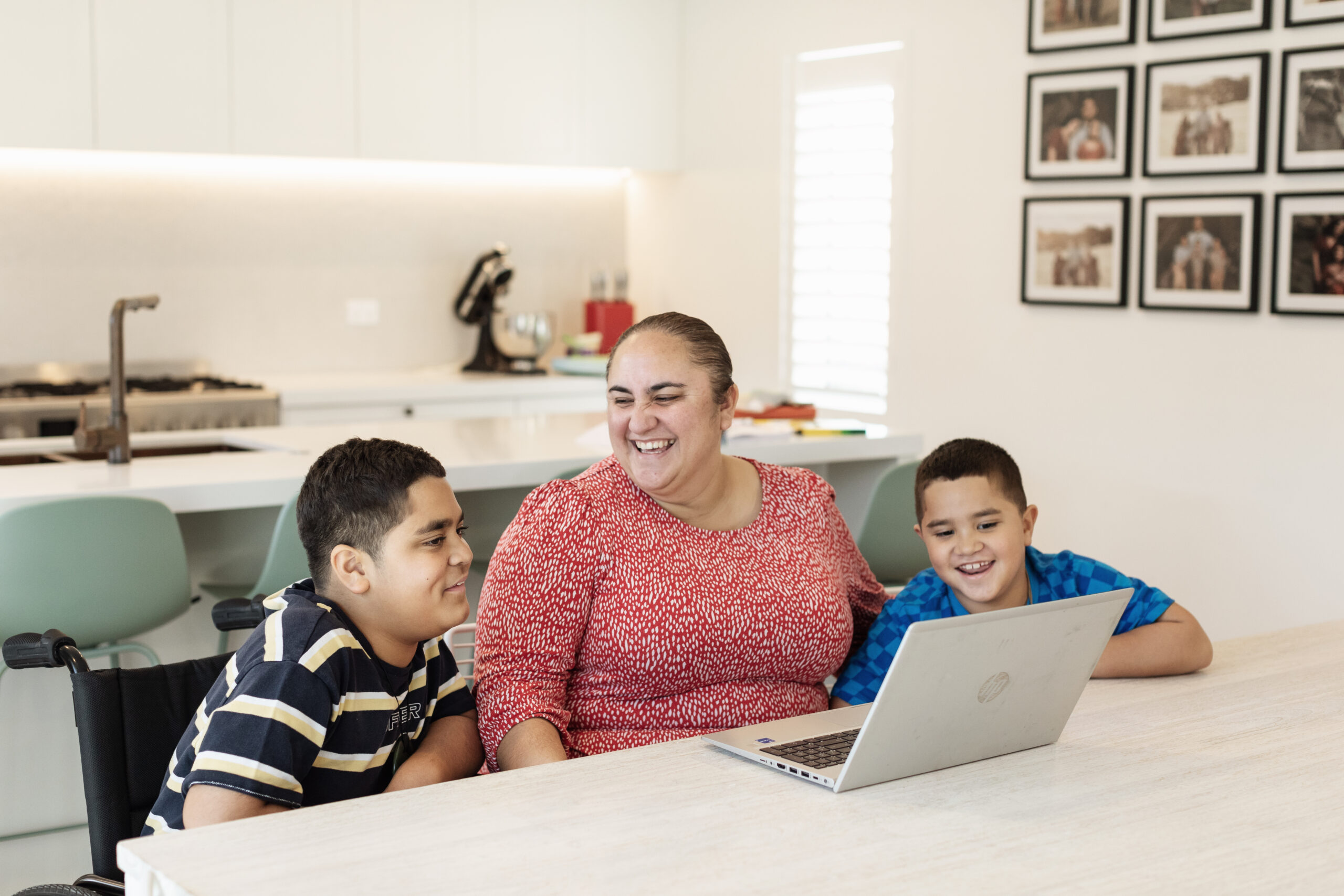
Whānau at the centre of disability support planning
"We want to make life as normal as possible for the boys."
As a mother of five and one of our Service Coordinators, Gemma expertly balances the demands of her large family while coordinating supports for Kaikaranga clients. For Gemma, whose whānau is a blend of Māori and Tongan heritage, family is everything. In a recent conversation, she opened up about the joys and challenges of raising her two sons, Fetu’u and Haloti.
In our family, Fetu’u isn’t just a name; it’s a reflection of who he is—a star in our whānau. His name literally means ‘star’ in Tongan and Māori, and he truly shines in everything he does. As the eldest boy, Fetu’u takes being a big brother seriously. He loves reading and gaming, but what most people don’t know is that he’s a secret karaoke singer with a fantastic sense of humour that keeps us all laughing.
Then there’s Haloti, our youngest. He may be small, but his personality is huge. He fills our home with laughter and excitement, always finding joy in the little things. He has a special love for animals and his happiness lights up our lives.
Honouring culture through personalised family support
Life hasn’t always been easy for our boys, especially with their disabilities. Fetu’u has Duchenne Muscular Dystrophy, and watching his physical abilities decline has been tough. When he got his first power chair, it was a mix of emotions for us—a big step toward independence for Fetu’u, but also a reminder of the challenges he faces.
Haloti’s journey has been different. Early on, he didn’t speak, avoided eye contact, and often stimmed with his arms and hands. He walked later than other kids and would never sleep. He preferred playing alone rather than with others his age. As a family, we’ve worked together to help Haloti with self-regulation and to encourage him to interact more with others.
Our journey with Kaikaranga started when we were referred by Starship Hospital. Fetu’u’s neurologist and his nurse were there for us right from the start, guiding us through those early days. Their support was crucial and really helped us on our way.
The planning process with Kaikaranga has improved over time. When the boys’ plans were reviewed, we were asked how we wanted support to look for our whānau, and that made us feel respected and understood. It felt more personal, more human. They asked about the boys’ interests, hobbies, and what we hoped for their future, which was really important to us. Kaikaranga connects us to the supports we need.
Our goals and dreams
As a family, our main goal has always been to keep things as normal and independent for the boys as possible. Fetu’u is now more involved in making decisions about his life, and we make sure Haloti gets the support he needs. While we recognise the boys’ disabilities, we also focus on their strengths and abilities. We want to help them achieve their goals in a way that works for them.
Our hopes for the boys have evolved over time. We’ve had to adjust as their needs change. Kaikaranga’s support has made a huge difference, giving us, as parents, the chance to take a break, and giving the boys opportunities to enjoy life outside the house. They love gaming, going to the zoo, swimming, spending time at Timezone, exploring the museum, and getting creative with arts and crafts.
As a parent who also supports others in similar situations, I’ve learned a few things along the way. First, you know your kids best. Make sure they’re included in decisions about their lives, and don’t be afraid to ask for help. Remember, you’re not responsible for their disability, and your mental health is important. Use the supports available to you and take those much-needed breaks.
It’s also helpful to learn about the different supports out there so you can make the most of them. And, most importantly, find your tribe. We’ve found comfort and strength in connecting with other whaikaha whānau. And don’t forget—you’re doing an amazing job. Ka pai!